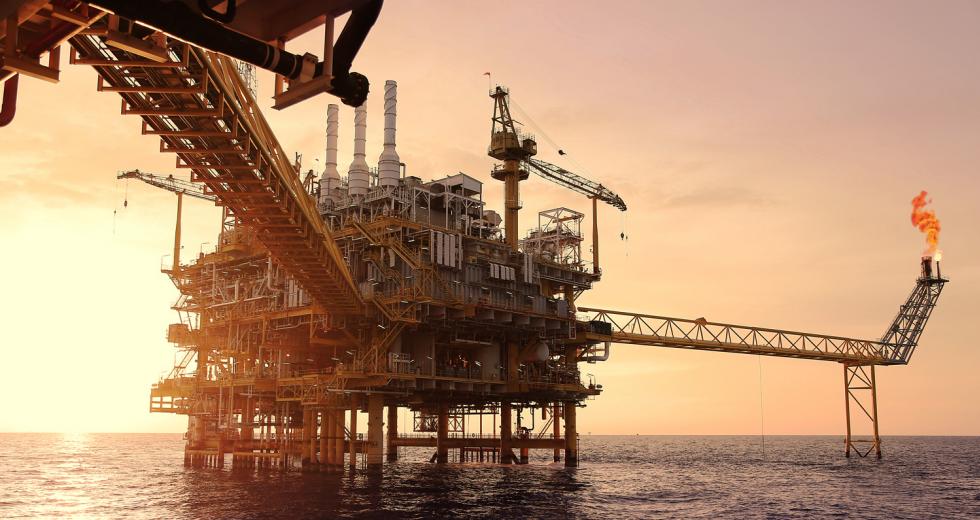President Donald Trump will open the door to new oil and natural gas drilling in Pacific waters off the coast of California with a directive Friday that sets up a certain clash with environmentalists.
Trump will order the Interior Department to review locations for offshore oil and gas exploration and consider selling drilling rights in territory that former President Barack Obama put off limits, according to people briefed on the order who spoke on the condition of anonymity before it is issued. That includes U.S. Pacific waters, as well as Arctic and Atlantic acreage left out of the five-year schedule of lease sales issued by Obama in November.
Interior Secretary Ryan Zinke said on Tuesday nothing is off the table. “We’re going to look at everything,” says Zinke, when asked about potential oil leases off the Pacific coast. “A new administration should look at the policies and make sure the policies are appropriate.”
Trump will sign a directive Friday, according to a White House aide who didn’t offer further details.
Federal regulators have tacitly written off the possibility of new oil and gas development along the coast amid opposition ignited by a 1969 well failure in the Santa Barbara Channel that fouled beaches and helped give birth to the modern environmental movement. Offshore platforms visible from the state’s southern shoreline are still extracting oil from more than 40 longstanding leases. The last drilling lease sale was in 1984.
Although the Obama administration formally asked the public to weigh in on a potential sale in federal Pacific waters as it began assembling the current five-year auction schedule, it ruled that territory out at the first possible opportunity. Given the opposition from elected officials and residents, Trump may eventually do the same.
Senators representing California, Oregon and Washington have locked arms to fight offshore drilling, arguing that any oil spills in the region could jeopardize fishing and tourism along the coast. They want federal legislation to permanently prohibit offshore drilling by their states. California Governor Jerry Brown has been pushing for a similar moratorium.
“New oil drilling along our coasts is unnecessary and dangerous,” says Senator Dianne Feinstein, a Democrat from California. “There’s no reason to expose more coastal economies to the risk of disastrous spills so oil companies can drill for hard-to-reach fossil fuels. Rather than signing reckless executive orders, the president should focus on investing in safer, cleaner energy sources.”
“It is very clear that the communities on the Atlantic and Pacific coasts don’t want and don’t need offshore leasing or drilling,” says Mike LeVine, senior Pacific counsel for the conservation group Oceana. “It is equally clear that President Trump is prioritizing politics and corporate interests ahead of our coastal communities and good stewardship of our ocean resources.”
More Opportunity
The oil industry has been seeking a shot at Atlantic acreage — a battle it lost when Obama’s Interior Department decided to forgo sales there. It’s not clear how enticing energy companies would find potential Pacific leases, given the risk proposed drilling wouldn’t clear a state review.
Still, the more opportunities to drill, the better, says Erik Milito, a policy director at the American Petroleum Institute, the industry’s leading trade group. By endorsing “a long-term energy strategy that allows opportunities to lease over years in various areas,” the Trump administration would be preserving flexibility for U.S. oil and gas development needed to help satisfy worldwide energy demand, he says.
“We’re not going to sit here and say that companies are going to want to go out and drill tomorrow in the Pacific and the Atlantic,” Milito says. But “it is important to keep options open for the long term, so companies can start planning for and determining where the best prospects are and then make those investments the global economy will require over time.”
“We shouldn’t be closing any type of windows to potential discoveries and production that likely would be years away,” he adds.
Pacific Access
Trump’s approach hearkens back to a failed bid by former President George W. Bush to put Pacific waters on the auction block after the 2008 oil price spike. Just before he left office, Bush offered up a draft leasing plan that included two potential sales off the U.S. West Coast. It was eventually scrapped under Obama.
Trump’s Interior Department has some options for revising — or supplementing — the existing, Obama-era leasing plan, but it must submit those changes to extensive scrutiny and public comment. Because the Obama administration decided against an Arctic lease sale very late in the process of assembling the current schedule, it would be the easiest for the Trump administration to restore now — unlike any potential auction of Atlantic and Pacific waters that would require years of work.
Trump’s Interior Department could face legal challenges if it tries to rewrite much of the plan without subjecting the changes to years of deep scrutiny. Critics could cite underlying laws that give the Interior secretary latitude to easily make changes only as long as they are “not significant.”
While he is moving to expand offshore access, Trump on Friday also is slated to direct a review of regulations safeguarding offshore oil and gas exploration, including a well-control rule triggered by the 2010 Deepwater Horizon disaster. The industry is also lobbying for changes to mandates for Arctic drilling.



